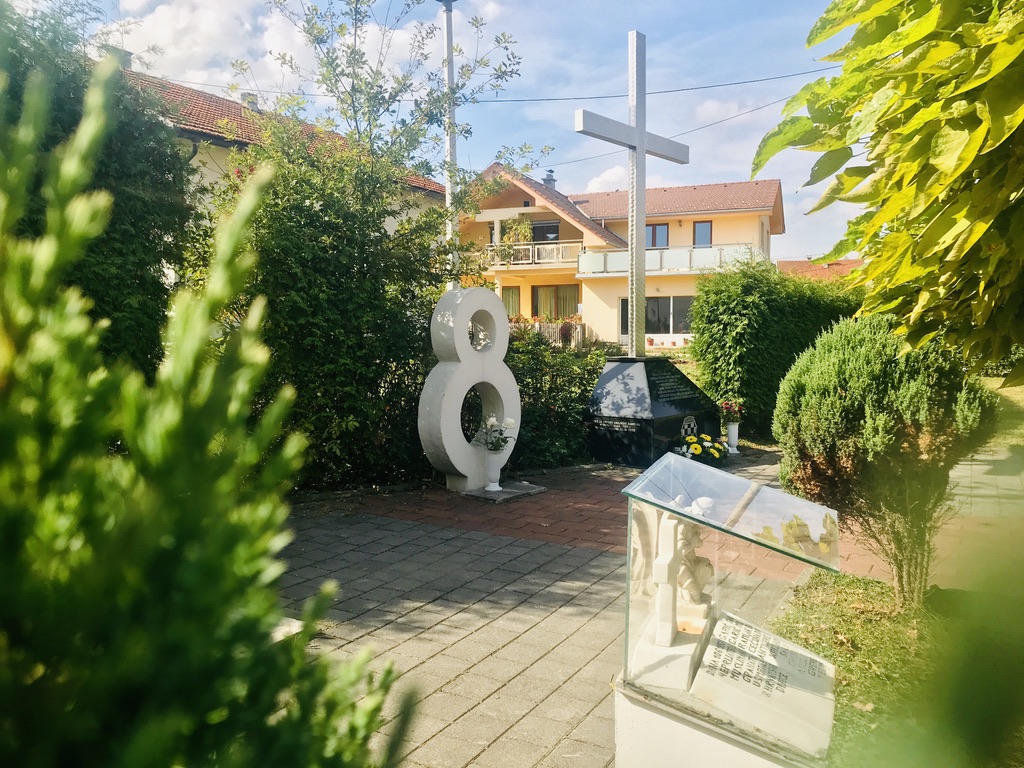
Extraordinary Commissioner for Agrokor Ante Ramljak (R)
Photo: Dragan Matic/HANZA MEDIA
When the government of a former communist country (Croatia) brings about and takes over with forced administration a calamitously failed private company (it subsidised and helped along the way as did the communist Yugoslavia regime via nationalisation of private assets and borrowed money injections) the gut tells you, regardless of the threat of thousands of job losses if that company sinks, you’re more than likely dealing with attempts of cover-ups of major incompetence, possible embezzlement come thefts and politically driven paths to sell and hand over the company or notable parts of it to a new entity. The private company in question is Agrokor (that employs some 60,000 people – dubbed the largest employer in the Balkans) and while the Croatian government is gung ho on bringing in domestic and foreign professionals to save the company from bankruptcy the fact remains that the government will be the one to choose those professionals and some members of the government may well have in their past dealings contributed to the downfall of Agrokor – professionally and/or politically.
Croatia’s Prime Minister Andrej Plenkovic is adamant his government is taking the right steps in its chosen path to save Agrokor but that view is certainly not shared by many, including Moody’s Investor Services who have April 11 downgraded Agrokor’s credit rating because of the new moves to restructure Agrokor and its family companies under the new special law passed in Croatian parliament as legislative foundation for the government to take over the administration of the company. Moody’s project that, with the new law (Extraordinary Management Proceedings in Companies of Systemic Significance) default is highly likely for Agrokor, especially due to emerging uncertainties in the restructuring process for the company.
Ringing in my head: when did Croatia’s Prime Minister and his government become expert in strategic corporate management? So far, for the last twenty odd years, including this one, all Croatia’s governments have been “famous” for is their mismanagement of the economy and privatisation, and yet this current government continues to demonstrate its certainty that they always know best, even if the country is in free-fall economically due to government mismanagement, or rather, due to business knowhow incompetency inherited from the communist era.
So, Croatia is struggling to contain the economic fallout from problems at heavily indebted food group Agrokor, the restructuring expert appointed by the government to lead the process Ante Ramljak, now the (extraordinary) Commissioner for Agrokor, has commenced his work a couple of days ago and vows to do his best to save the company from bankruptcy. On the other hand Moody’s would suggest we buckle-up and wait for the inevitable bankruptcy of the company. According to the data from last September, Agrokor’s debts totaled around 45 billion kuna (US$6.42 billion), or six times its equity
On Friday 7th April, Agrokor’s CEO and majority owner, Ivica Todoric, handed over control of the indebted company to the Croatian government. Mr. Todoric activated a process of ‘extraordinary management’ following the passing of the abovesaid special law that was voted through by Croatia’s parliament that same day.
The special law, nicknamed “Lex Agrokor”, applies to companies of systemic importance to Croatia. The company must employ more than 5,000 workers and report revenue of at least HRK7.5 bn (€1bn). The law was formed to avoid the impact of Agrokor’s bankruptcy on the Croatian economy. Agrokor’s revenue stream of €6.5 bn in 2015 made up 15% of Croatia’s nominal GDP, and has 60,000 employees in Croatia and in other Balkan markets.
‘Lex Agrokor’ empowers Croatia’s judiciary to name Agrokor’s overseer and to placed it under the control of the Ministry of Finance. The judiciary’s appointed ‘extraordinary commissioner’ – Ante Ramljak – will oversee the restructure of Agrokor and its debt repayment as well as ensure payments to suppliers and maintain the flow in supply chain in the retail and food and agriculture business segments. The law stipulates that if within 15 months, following the activation of this law, a settlement is not reached between the debtor and lender then bankruptcy proceedings can begin.
From the Croatian government’s website we learn that “the coordinating committee of Agrokor’s financial creditors comprises Erste Bank, Privredna Banka Zagreb, Raiffeisenbank Austria, Sberbank, VTB Bank (Austria) AG and Zagrebacka Banka. The representatives of the banks support the legislative and institutional framework and also offer support to Ante Ramljak, who has been appointed receiver to Agrokor, Plenkovic said after the talks. The banks are ready to give a new loan, that is fresh liquidity to Agrokor, so as to enable this ailing retail and food concern to pay its workers and suppliers and help the group to function.”
The biggest Russian bank Sberbank is doing everything it can to support the Croatian Agrokor concern, to which it is the biggest creditor, stated recently the CEO of that Russian bank Herman Gref, adding that Sberbank does not want to manage retail in Eastern Europe. “We’re in close contact with the owners and management of Agrokor and we continue to support them. We will do everything so that the company remains standing and solves its temporary problems. There is a plan to get out of this situation which has been agreed with us,” Gref said in Moscow, without giving details.
The possibility exists that Russia’s companies could buy significant units in Agrokor – what a way to get Russia’s paws into the Croatian economy! Oh, how the former and current and redesigned communists network! Sadly, no easy sleeps seem possible for many of Croatia’s people in the foreseeable future.
Croatian government’s move to extraordinary and emergency control of Agrokor is nowhere near the concept and practicality of government bailouts we’ve grown to know in Western democracies since the 2007-2008 GFC. What’s happening with Agrokor is a takeover reminiscent of dictatorial entrenchments that do not equally and with same intensity open up to creating new avenues for job creation in case Agrokor does go into bankruptcy at the end of the day. All eggs in one basket so to speak. Not a good way to go. Ina Vukic








Leave a reply to Averting Yet Another Collapse Of Croatian Government – Croatia, the War, and the Future Cancel reply